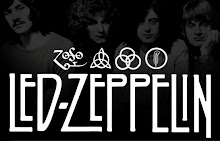A fragment of historical perspective in Romanticism
The four-fold vision of Urthona.
Albion, the traditional name for England, was built as an
apocalyptic, biblical place. The prophecies would later define the land called
America. The old social contract prior to the Amercan Revolution, said, “men
are born free but are chained prisoners,” became a spark to a calling of
change; a new order called the great awakening.
In 1776, what was to become “the coming of manhood,”
redefined freedom as a wholly complete.
Two characters associated with the allegorical holy land: Urthona’s
daughter and the guardian prince of Albion, symbolized desire representing
rebirth. She is freed from her sexuality. Albion, caught in British
colonialism, realized an inadequacy of vision which was an underlying issue in
the British empire was pervasive and deficient of civilization.
The conservative voice vs. the American.
Everything is occurring by way of revolution. This was the
prevalent voice. “The holiness of theself.” Walt Whitman’s “Song to Myself” was
a four fold vision. It was to “cleanse the gates of sense” and as Blake would
call it the “doors of perception.”
Wordsworth.
The great poet Romantic, was an anti-intellectual, not in
favor of learning. He was more or less concerned with a visionary union of
nature. Heavily influenced by the French Revolution, Wordsworth felt its
powerful fever transcend through dream visions, rather than pragmatic reason.
Coleridge and Wordsworth.
Wrote a collection of poems together. The first manuscripts
were contributed to Wordsworth. He wrote 18 and Coleridge, four. Coleridge
wrote the ever timeless “Rime of the Ancient Mariner,” and Wordsworth followed
with the epic “Tintern Abbey.”
Nature was a physical presence rather than a sacrament of
nature. The common man obscured by noble mythology and neo-classical paradigms.
The poet, void of particularities and constricting models; he is someone who
feels universal to the emotive being of nature as an out within realm.

No comments:
Post a Comment